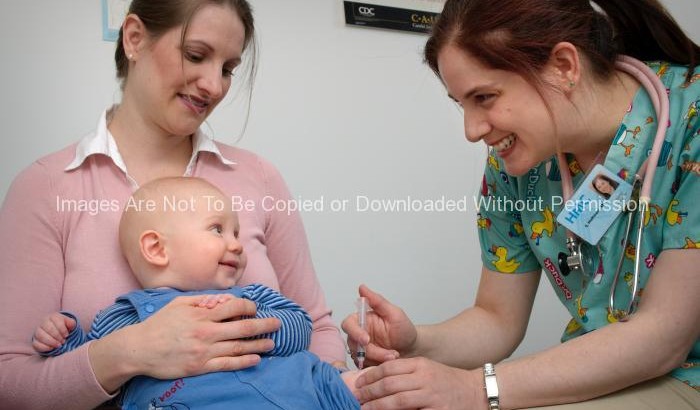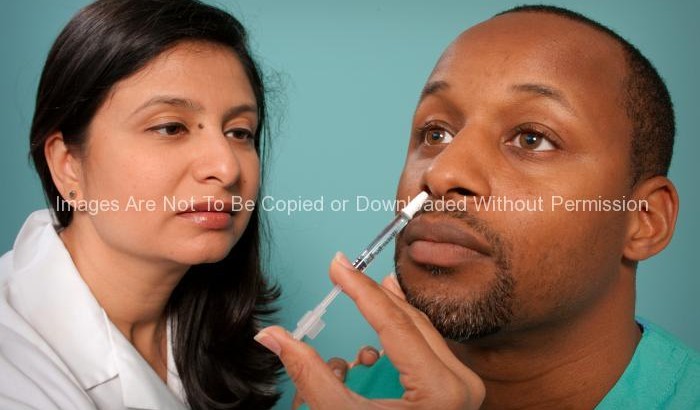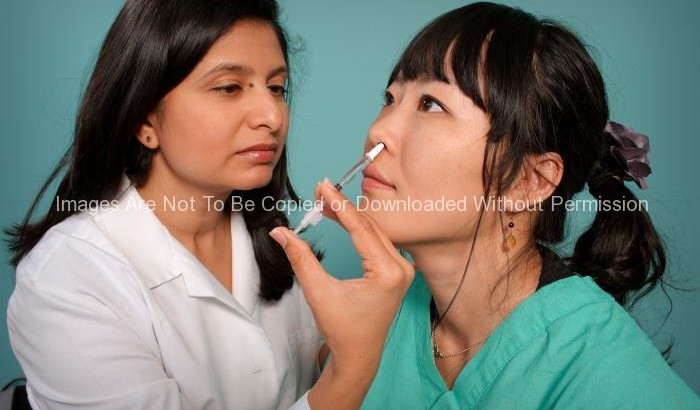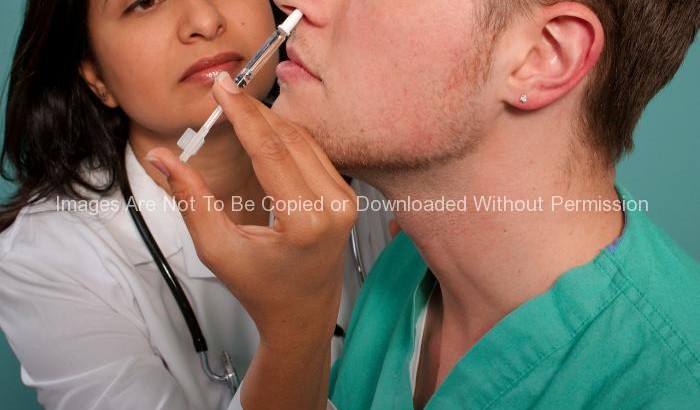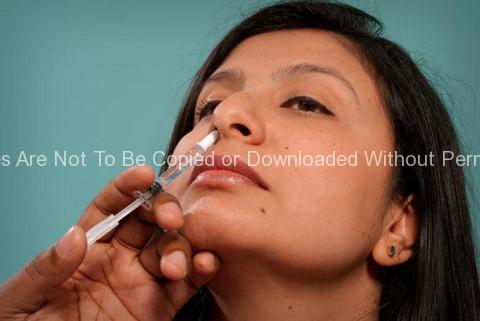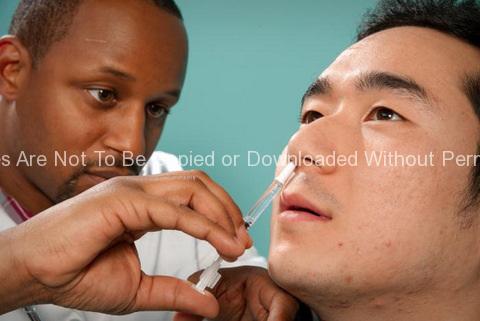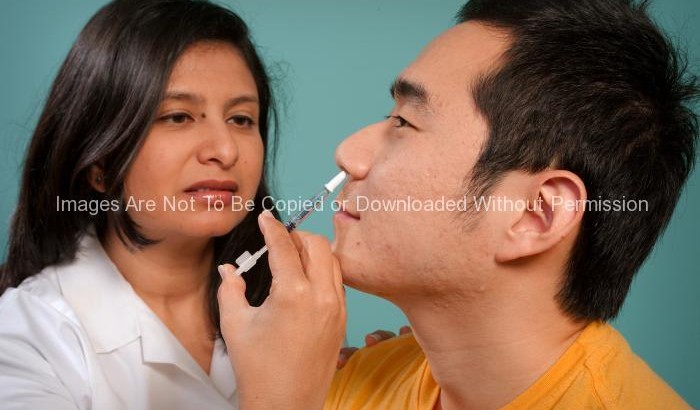Held by his mother, this infant was receiving an intramuscular immunization in his left thigh muscle, which was being administered by a qualified nurse who was stabilizing the injection site with her palm. The nurse was distracting the infant while she was administering the vaccine.
Infant Immunizations
Immunization is one of the most important public health interventions in history. It has saved millions of lives over the years and prevented hundreds of millions of cases of disease.
Infants and young children need to be vaccinated because the diseases prevented by vaccination can strike at an early age. Also, these diseases can be far more serious or common among infants or young children. For example, of the children under 6 months of age who get whooping cough (pertussis), 72% must be hospitalized, and about 84% of all deaths from pertussis are among children younger than 6 months of age.
Immunization is one of the most important things a parent can do to protect their children’s health. Today, we can protect children younger than two years old from 14 serious diseases including:
Haemophilus influenzae type b (Hib) (bacterial meningitis);Diphtheria; Hepatitis A; Hepatitis B; Influenza; Measles; Mumps; Pertussis (whooping cough); Pneumococcal disease; Polio; Rubella (German measles); Tetanus (lockjaw); Rotavirus; Varicella (chickenpox);
At least one vaccine is needed for each of these diseases, and for some diseases several doses are required for the best protection. Several “combination vaccines” exist in which multiple vaccines are given in a single shot, reducing the number of shots needed.
